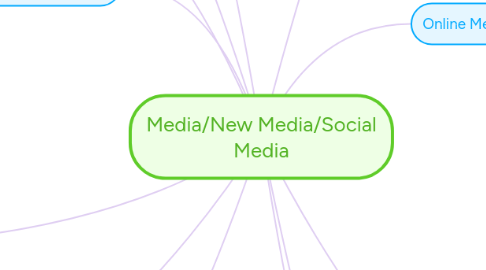
1. Viral Video Success
1.1. Set objectives/KPIs
1.2. Understand your audience
1.3. Brief your creative guys
1.4. Choose the best idea
1.5. Provide transcripts and optimise
1.6. Execute brilliantly
1.7. Seed it cleverly
2. Overview of Digital Marketing
2.1. Acquisition
2.1.1. Natural search, paid search, affiliate marketing, display advertising, viral marketing, online PR, RSS, blogging, UGC, social media, podcasting, wiki's
2.2. Retention
2.2.1. Landing page optimisation; web customer journeys; conversion tracking; personalisation techniques; email marketing; mobile; nano chat
2.3. Management
2.3.1. Strategic planning; online measurements; database management; legal issues; digital design and usability; media optimisation; integrating with off-line channels; social graph search and PVC
3. Online Display Advertising and Virals
3.1. Display
3.1.1. CPI/CRM, audience driven, reach and frequency, campaign-oriented, awareness, engagement, advertises carries risk
3.2. What makes online ads successful
3.2.1. Tie in with media; engagement; beware banner blindness; clear call to action; link to appropriate landing page; create a 'scent trail' through process
3.3. Online Performance Measurement
3.3.1. Impressions, clicks, leads, sales, total sales, average order value, life time value
4. Key AIMRITE Qualities of Email
4.1. Audience
4.1.1. Little scope for segmentation; email addresses can change frequently; often have sign up addresses; potential for viral impact
4.2. Impact
4.2.1. Received alongside personal emails; easy to identify and delete without opening; colour pictures, clickable text, video attachments; lacks impact of TV
4.3. Message
4.3.1. Largely follows rules developed for direct mail
4.4. Response
4.4.1. 90% responses received within 36 hours
4.5. Internet Management
4.5.1. Estimate likely responses; ensure enough staff available for fulfilment
4.6. End Result
4.6.1. CPM reduces with bulk quantities; 1-2% response rates should be possible; huge potential
5. Email Methods of Gathering Data
5.1. Online
5.1.1. surveys, competitions, website registration, links from emails
5.2. Offline
5.2.1. Satisfaction surveys, competitions, in-store, list rental/purchase
6. Successful Steps in e-CRM
6.1. Build a permission centre
6.1.1. Opt in is good, double opt in is better; create registration process to gather small amounts of data at a time; offer incentives to persuade people to give you data; ask for relevant variables; keep innovating
6.2. Personalise your email
6.2.1. Use the data collected; refer to past purchases; include appropriate graphics; different offers to different segments
6.3. Analyse campaign results
6.3.1. Messages sent; messages delivered/bounced; response rates; links clicked; replies; unsubscribe requests
7. Managing Email Marketing Campaign
7.1. Internally or externally managed
7.1.1. Depends on resources
8. Online Media
8.1. 5 S's of E-Marketing
8.1.1. Sell - Direct sell, potentially to global market
8.1.2. Serve - Additional means of servicing customers
8.1.3. Save - Savings on traditional business can be passed on/kept
8.1.4. Speak - Two way dialogue with suspects/prospects/customers
8.1.5. Sizzle - Something extra special to make the site sticky
8.2. Websites should have
8.2.1. Creative flair of advertisement
8.2.2. Style and information of company brochure
8.2.3. Personal touch and individuality of face to face
8.2.4. Clear pointers to what is expected of visitors
8.3. 4 Key Drivers for Consumers
8.3.1. Accessibility
8.3.1.1. Worldwide
8.3.1.2. 24/7
8.3.1.3. Massive knowledge base
8.3.1.4. Fast retrieval
8.3.1.5. Easy to operate
8.3.2. Control
8.3.2.1. Select content you want to see
8.3.2.2. Content comes to you
8.3.2.3. Ability to opt out
8.3.2.4. Anonymity
8.3.3. Searchability
8.3.3.1. 'To Google' a verb
8.3.3.2. Search engines do the work
8.3.3.3. Easy competition comparison
8.3.4. Functionality
8.4. 4 Key Drivers for Businesses
8.4.1. Audience Reach
8.4.1.1. Deep UK penetration
8.4.1.2. Cheap way to venture abroad
8.4.2. Cost
8.4.2.1. Online shop cheaper than real one
8.4.2.2. No brochure print costs
8.4.2.3. Comms cheaper than DM/TV
8.4.3. Competition
8.4.3.1. If competitors are there...
8.4.3.2. SEO
8.4.4. Dialogue
8.4.4.1. Two way communications
8.4.4.2. Tracking of visitors
8.4.4.3. Uniquely responsive medium
9. Facebook
9.1. Over 35s fastest growing group on Facebook
9.2. More over 40s than 13-18s
9.3. 30 million active UK unique users
9.4. 50% of UK population
9.5. 68% better ad awareness, 4x better conversion
9.6. Average UK user on 28 mins a day
10. Blogs
10.1. 1. Template
10.2. 2. Title
10.3. 3. Strap
10.4. 4. Bio
10.5. 5. Previous Posts
10.6. 6. Archives
10.7. 7. Latest entry at top
10.8. 8. Single column
10.9. 9. Images and text
10.10. 10. Comments
10.11. 10. Varying lengths of posts
11. Twitter
11.1. 500 million registered, 200+ million regular users
11.2. 58 million tweets a day
11.3. 800,000 search queries a day
11.4. Hashtag marketing
11.5. Making more of the @ sign
11.6. Twitter and real time search
11.7. Live updates vs. feeds
12. Email Marketing
12.1. Glossary
12.1.1. Bounces - Emails can't be delivered
12.1.2. Click through rate - % of recipients click on email
12.1.3. Opt out - Ticked 'don't email me'
12.1.4. Opt in - Ticked 'email me'
12.1.5. Double opt in - Filled out form to be emailed
12.1.6. Streaming - Using video and/or audio in emails
12.1.7. Viral - Email passed along friends
12.2. Characteristics
12.2.1. 300 bilion emails sent daily
12.2.2. Useful for acquisition and retention
12.3. Advantages
12.3.1. Easy, convenient, cheap, quick, ideal one-to-one medium
12.4. Disadvantages
12.4.1. Not very targetable, lacks dramatic impact, suffer 'spam image', can go wrong quickly
12.5. Rules for Emailers
12.5.1. Always opt in, preferably double opt in; always offer unsubscribe buttons; can't sell email addresses without permission; subject lines mustn't be deceptive; source of email must be traceable; include a full postal address
